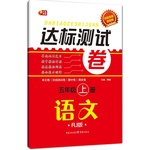题目内容
When the Farnsworth family moved to their new farm in 1919, eleven-year-old Philo was surprised to find it wired for electricity. This unusual circumstance contributed to his fate — to become an important inventor of the twentieth century.
By thirteen, Farnsworth had become a self-taught electrical engineer. He was able to fix the farm’s generator(发电机)when none of the adults could. In 1922, he read an article about a new idea of John Baird, a Scottish scientist, who had been working with the cathode ray tube (阴极射线管) for the transmission of electronic pictures and wanted to attempt it himself.
Farnsworth studied everything he could find on the subject. Although many older engineers with money backers were already developing television, Farnsworth made a bold decision — he was going to perfect a working model of it before anybody else.
In college, Farnsworth continued his research with cathode ray and vacuum tubes, but the death of his father, the only money maker in the family, forced him to give up this research and find a job. His first job was for George Everson, with whom Farnsworth discussed his dream of television. While acknowledging the achievements of those who came before, Farnsworth thought that he could get closer. Everson agreed to risk $6,000 for the research.
Backers came in 1927 to see the first American television, one year after Baird’s. They were astonished to see the image of a single white line resolve itself on the screen before them, and agreed that this new invention was worth putting money into.
In 1930, Farnsworth won a patent (专利权) for his all-electronic TV. By the time he died, he had earned over 300 American and foreign patents for electronic and mechanical devices.
1.When Farnsworth was at a young age, he _______
A. had to drop out of school to help on the family farm
B. was sent to school to study electrical engineering
C. wanted to be the first person to invent the television
D. had shown a surprising ability in the electrical field
2.What difficulty did Farnsworth meet when he first began his research on the television?
A. His parents didn’t support his work.
B. He didn’t have enough knowledge in this field.
C. He didn’t have enough money for his research.
D. No one was interested in this research.
3.How old was Philo Farnsworth when he invented the first American television?
A. 11. B. 13. C. 19. D. 22.
4.From the passage, we can learn that Farnsworth is ______.
A. the first person who worked for the transmission of electronic pictures
B. an inventor who improved on somebody else’s idea
C. an inventor who always came up with an original idea
D. a person who earned over 300 American patents for electronic devices
1.D
2.C
3.C
4.B
【解析】
试题分析:他在少年时代就在电气方面显现出了不凡的才能,13岁就通过自学成为了电机工程师,这就是本文介绍的二十世纪最重要的发明家之一------费罗•法恩斯沃斯。他是一名多产的发明家,除发明了第一台能传输图像的机械式电视机外,他还发明了一百多种装置。
1.D推理判断题。文章第二段提到他在13岁的时候通过自学成为了电机工程师,而且能够修理农场的发电机,由此可知本段讲述了法恩斯沃斯在少年时代就表现出的不凡才能,故答案选D。
2.C细节理解题。根据文章第四段可知当他在研究改进电视机时,家里唯一挣钱的父亲去世了,他没钱进行研究,所以正确答案为C。
3.C细节理解题。根据文章第一段When the Farnsworth family moved to their new farm in 1919, eleven-year-old Philo was surprised to find it wired for electricity. 和倒数第二段Backers came in 1927 to see the first American television,可以判断当他发明一台美国电视机的时候是19岁,故答案选C。
4.B细节理解题。由文章第三段he was going to perfect a working model of it before anybody else.可知他是在别人研究的基础上进行了改进完善,由此可知答案选B。
考点:考查人物类短文阅读。

 芒果教辅达标测试卷系列答案
芒果教辅达标测试卷系列答案